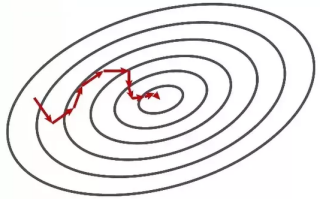Isotonic (monotonic) regression is the technique of fitting a piecewise line to a sequence of observations such that the fitted line is monotonically non-decreasing.
Let $(x_1,y_1),\ldots ,(x_n,y_n)$ be a given set of observations, where the $y_i \in \mathbb{R}$.
The isotonic regression problem a weighted least-squares fit ${\hat y_i} \approx y_{i}$ for all $i$, subject to the constraint that ${\hat y}_i \leq {\hat y}_j$ whenever $x_i \leq x_j$.
$$ \min \sum_{i=1}^{n} w_i ({\hat y_i}-y_i)^2 \text{ subject to } {\hat y_i} \leq {\hat y_j} {\text{ for all }} (i,j)\in E$$
where $ E={(i,j):x_i \leq x_j} $ specifies the partial ordering of the observed inputs $x_i$.
Read More